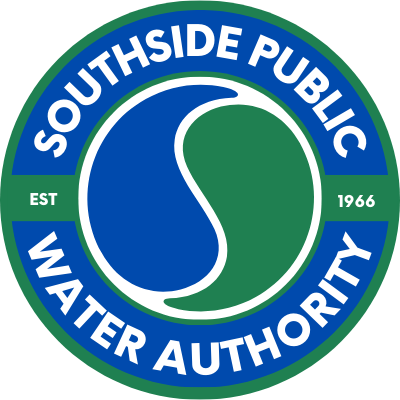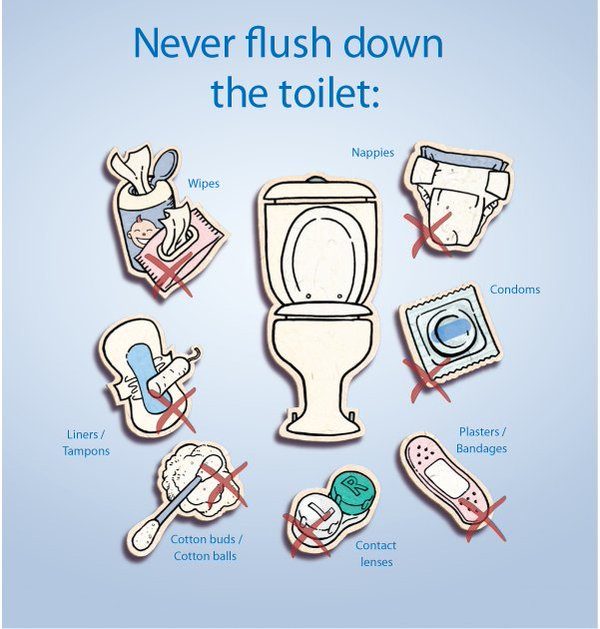Southside Public Water Authority provides public sewer service to targeted areas most in need of wastewater collection. These areas include Clearview, Riverview, Alderbrook and Denison Heights subdivisions, as well as along both sides of Highway 167 from the top of Ramsey Mountain, south to Caney Creek and along both sides of Heber Springs Road from the intersection with 167 west to the 2200 block of Heber Springs Road. A low pressure collection system has been constructed using individual grinder pump stations at each business/residence, which is not dependent on gravity flow. This allows every structure within the service area access to the collection system, which then moves the raw sewage to a wastewater treatment plant.
MOST OFTEN ASKED QUESTIONS & ANSWERS
Q. Will I be required to connect to the sewer system?
A. Any new construction within 300 feet of a public sewer main will be required to connect. The county sanitarian will not issue sanitation permits for new private septic systems if a public sewer main is within 300 feet and access to the main does not require crossing another landowner.
Q. How much will this cost me?
A. SPWA has established a $30.00 minimum for zero (0) gallons and then $3.00/thousand thereafter. New customers without usage history will be charged a fixed monthly rate of 5,000 gallons per month (currently $45.00) until a winter average is established. The average will be calculated based on your November through February water usage and will be fixed for the next 12-month period, reanalyzed in March of each year.
Q. Will I have to pay a connection fee or a deposit?
A. A $50.00 sewer deposit will be the only requirement to existing homes and businesses, payable any time prior to the beginning for services. All new construction or any connections to the current system, will require a connection fee (to be established by the board of directors, based on the cost of a complete grinder pump station, discharge piping and labor to install it, estimated at this time to be in the $7,000 range for simplex basins) along with a sewer deposit.
Q. Am I, the customer responsible for the maintenance of the grinder pump station?
A. No. SPWA will provide all maintenance and upkeep on the grinder pump station as well as discharge piping from the station to the main. The homeowner will be responsible only for the sewer line coming from the house to the grinder pump station and maintaining electricity to the unit.
Q. Where will the grinder pump station be located?
A. Generally, as close as possible to your existing septic tank. This makes it easier for the contractor to reroute to the grinder pump station. Your septic tank will no longer be used and can be left where it is. There will be a small (approximately 1 1/4 inch) discharge line that will extend from the grinder pump station to a slightly larger sewer main, probably located parallel with the street or road adjacent to your home/business. There will also be a 240v/1ph electrical connection made from your house to the grinder pump to run the 1-hp grinder pump in the sump.
Q. Do I have to pay for the electricity used by the grinder pump station and if so, how much will it cost?
A. Yes. These pump stations use the equivalent electricity of a single 40-watt light bulb or less than a 20-kilowatt hours per month.
Q. What happens if the electricity goes off?
A. Like any electrical device, if there is no electricity, the pump will not run. However, the station sump has a capacity of approximately 70 gallons residential and up to 500 gallons commercial, which would allow for some usage even when the power is off for a period of time. Generally most power outages do not last more than approximately two hours.
Q. What about vacant lots in this area or new connection?
A. All new construction will be required to connect to the system if access is available. No sanitation permits for private septic systems will be issued according to Arkansas Department of Health. A connection fee (to be established by the board of directors) will be assessed along with the $50.00 sewer deposit.
Q. If I own existing rental property and I sign up to have this property connected, will I be required to pay a monthly bill whether this structure is occupied or not?
A. Yes. Any properties connected to the sewer, like water service, pays for the service while it is connected. The only way to avoid a monthly bill is to have the service disconnected (turned off) while it is unoccupied. Otherwise, you will pay a minimum bill each month.
Q. Who can sign Agreements/Contracts and Easements?
A. Only owners of real property can sign. Rental property must be signed by the owners of the property, not renters. Schools, banks, nursing homes, etc. can be signed by whoever is legally authorized to sign.
Q. Will this increase or improve my property value?
A. Yes. Property value where this type of service is available will increase substantially. This will also allow for the use of urban size lots for building because of the elimination of having to dedicate a large portion of the lot toward a private septic system, as well as being able to construct on lots which previously would perk for private septic systems.
Q. Is the wastewater collection and treatment system expandable and can it accommodate future growth.
A. Yes. Both the wastewater collection system and the wastewater treatment plant are initially designed for 50 percent growth. Both the collection system and the treatment system can be expanded in the future to accommodate growth beyond these amounts.
How to Maintain a Healthy Sewer System
Please note the following guidelines on care and use of the grinder pump. The grinder pump will not function without electricity, so it is extremely important that power never be disconnected to an occupied residence or building. SPWA advises that grease/oil used for cooking, kitty litter, glass, metal, seafood shells, goldfish stone, diapers, cloth, plastics, and sanitary napkins not be introduced into any sewer, either directly or through a kitchen disposal. In addition explosives, flammable material, lubricating oil, grease, strong chemicals, paint, paint thinner, gasoline, and strong solvents must NEVER be introduced into any sewer. Due to a few incidents, SPWA would like to inform you that we are responsible for maintaining the public sewer system, however can not be responsible for damages done from the above mentioned items. Please understand that household chemicals such as bleach, toilet cleaners, Drain-O, etc will not cause damages to the system. Also, be advised that if your home or business is going to be left unoccupied for an extended time (longer than two weeks) the system should be purged. This is done by running clean water into the unit until the pump activates, then turn the water off and allow the grinder pump to run until it shuts off automatically. If unit alarms, this indicates a possible problem with the pump or an electrical failure and immediate attention is required by SPWA wastewater personnel, please call (870)251-2508 7:30AM to 4:30PM MON-FRI or after hours, weekends, and holidays call (870)251-4110.
Cease the Grease -- Watch this video to see what happens when grease is poured down the sink.


 What Not To Flush
What Not To Flush